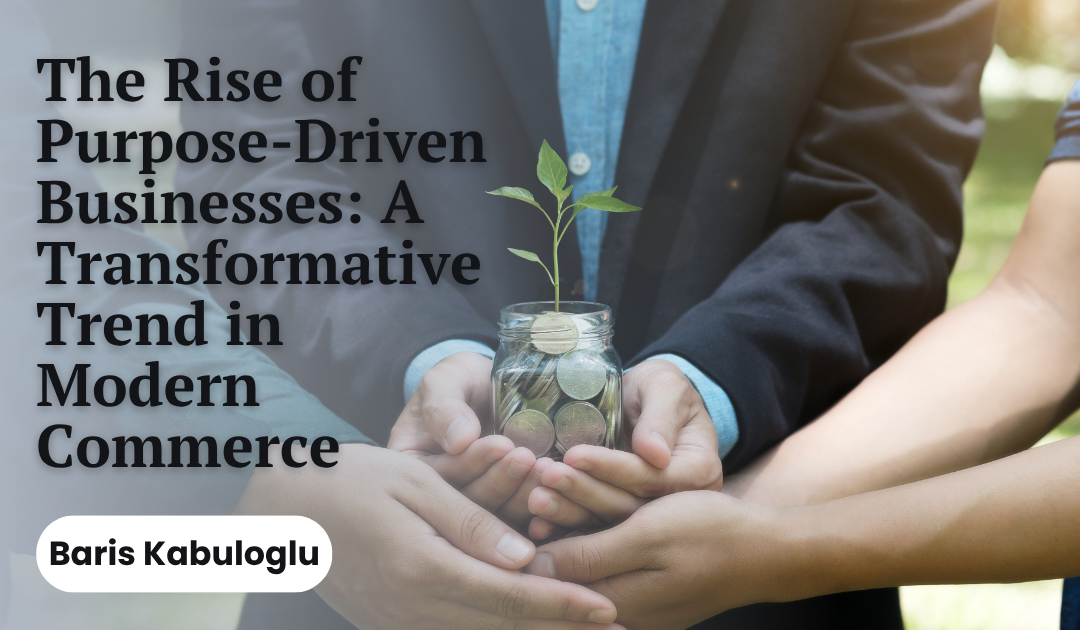In today’s rapidly evolving business landscape, one powerful trend is reshaping how companies define success: the rise of purpose-driven businesses. More than just a feel-good tagline or a marketing gimmick, a clear and genuine sense of purpose is becoming central to business models across industries. Companies are increasingly aligning their operations with values that resonate with employees, consumers, investors, and broader communities. This shift reflects a growing belief that businesses should not only generate profit but also drive positive social and environmental change.
At the heart of this transformation is a generational shift in consumer behavior and workforce expectations. Millennials and Gen Z, now major economic drivers, prefer brands that stand for something beyond financial gain. Whether it’s environmental sustainability, social justice, ethical labor practices, or community engagement, these consumers are more likely to support brands whose values align with their own. This demand is pushing companies to reexamine their mission statements, supply chains, and social impact strategies to remain competitive and credible in a values-driven marketplace.
The COVID-19 pandemic and subsequent global disruptions acted as a catalyst for this change. The crisis exposed deep inequalities and vulnerabilities in existing business systems. As a result, businesses began to prioritize resilience, empathy, and long-term value creation over short-term gains. Investors, too, started to scrutinize companies through the lens of Environmental, Social, and Governance (ESG) metrics. Large investment firms and stakeholders are now favoring businesses that consider their impact on the world, not just their bottom line.
Internally, having a strong organizational purpose is proving to be a magnet for talent. Employees are seeking more than a paycheck—they want meaningful work. Organizations with a well-articulated and authentic purpose tend to enjoy higher employee engagement, increased retention rates, and stronger workplace cultures. Leaders are realizing that when individuals understand how their contributions support a larger mission, they are more motivated, innovative, and committed.
Purpose-driven business strategies also unlock new avenues for innovation. When companies center their purpose around solving real-world problems, they often discover fresh markets and customer needs. For example, companies that prioritize sustainability are leading innovations in green technologies, circular economies, and zero-waste manufacturing. These innovations, in turn, attract consumers who are willing to pay a premium for ethically made and environmentally friendly products.
Transparency and accountability are key to the success of this movement. Consumers and watchdog organizations are quick to call out “purpose-washing”—when companies promote values they don’t truly practice. To avoid this, businesses must back their mission statements with measurable actions and consistent communication. Purpose must be embedded in every level of the organization, from product design and operations to hiring practices and executive decision-making.
The trend of purpose-driven business is also influencing how companies collaborate. Brands are forming partnerships with nonprofits, advocacy groups, and even competitors to tackle large-scale challenges like climate change, inequality, and public health. These collaborations extend a company’s reach and demonstrate a commitment to collective well-being.
This shift does not mean abandoning profit. On the contrary, numerous studies show that companies with a strong sense of purpose tend to outperform their peers financially in the long run. Purpose builds trust, and trust is a powerful currency in today’s transparent and hyper-connected world. Customers return to companies they believe in, employees invest more energy into organizations they care about, and investors reward businesses that demonstrate long-term vision and integrity.
Looking ahead, the trend toward purpose-driven commerce is only expected to grow stronger. As societal challenges become more complex and visible, people are turning to businesses not just for goods and services, but for leadership and solutions. Companies that embrace this responsibility and integrate purpose into their core strategies will be better positioned to thrive in the future economy.
In a world where profit and purpose are no longer mutually exclusive, the most successful businesses will be those that find ways to do well by doing good.

